Alex Greene joins Chris McCoy to talk about his cover story on protest music in Memphis, “Positively UnAmerikan.” Check it out on the Memphis Flyer YouTube channel.
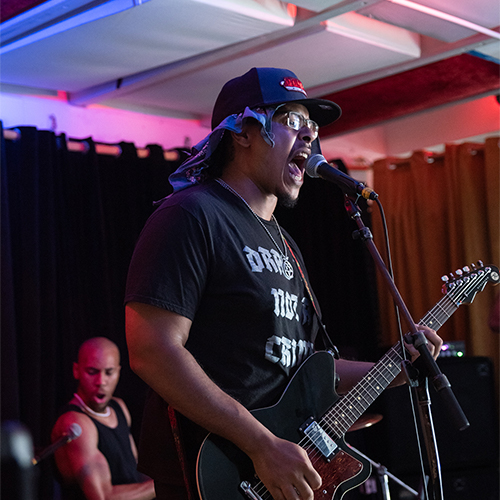

Alex Greene joins Chris McCoy to talk about his cover story on protest music in Memphis, “Positively UnAmerikan.” Check it out on the Memphis Flyer YouTube channel.
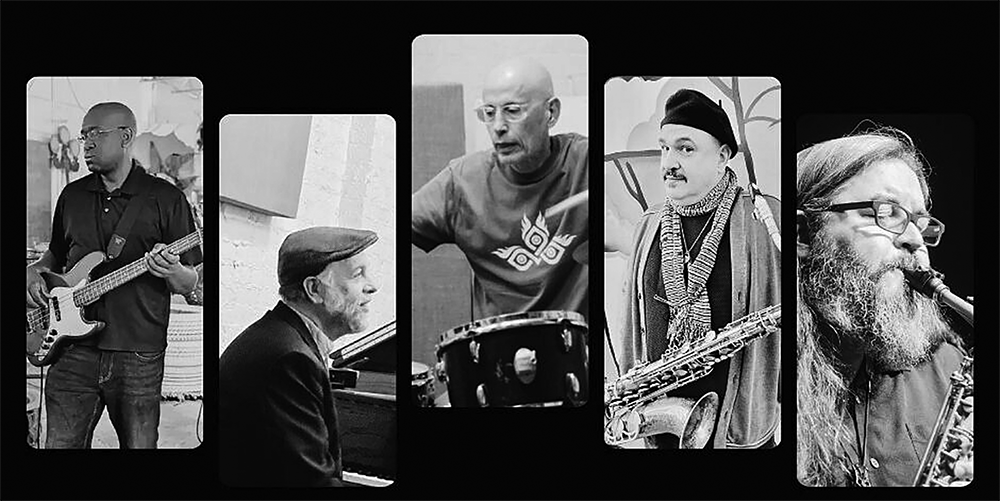
When Steve Hirsh and Friends take the stage at the Green Room at Crosstown Arts, they will have something in common with the audience. You won’t know what songs they’re going to play, and they won’t know either!
Hirsh will make the long drive from his home in Bemidji, Minnesota, to play with a group of Memphis’ finest “free” musicians, all of whom have embraced extemporaneous music-making for years.
Saxophonist Arthur Edmaiston says both he and saxophonist/flutist Chad Fowler were steeped in improv in the 1990s, with regular sessions at Young Avenue Deli that coalesced around saxophonist Frank Lowe. “He came back to Memphis in the ’90s after a 20-plus year career,” Edmaiston says. “It was a weekly gig, and that was a great way for us to all develop our own thing and develop as a band and improve as musicians. And we recorded those shows. See, we all lived in the neighborhood, so we’d go and we’d do the gig and record it, and then we’d come back home and drink on the porch, whoever’s porch, and listen to what we had done earlier and tear it apart and kind of learn from it.”
“Is this free jazz?” I ask Hirsh, referring to a genre tag that was often applied to Lowe.
“I’m going to ask you not use that term,” Hirsh replies.
As bassist Khari Wynn explains, many improvisational musicians consider the term a trap. “As soon as you drop the ‘J’ word, you get two avenues of thought. People are immediately like, ‘Oh, I don’t like that. It doesn’t have words. It’s too out there.’ Or you get the other side of it where people are like, ‘Oh yeah! I’m definitely a jazz fan!’ So then they expect to hear some of these certain figures repeated or played, and then if you don’t do that, then you’re not authentic.”
Hirsh was originally from New York City, the crucible of modern jazz, but left when he was still a teenager. “I wasn’t even aware of all that stuff,” he says. “I grew up on rock-and-roll. I didn’t start learning about jazz until I was in high school. I just kind of stumbled across some records. I went to the ‘University of Liner Notes,’” he says. “I moved out to the Bay Area, and I was playing in rock-and-roll bands and blues bands and really got into the [Grateful] Dead, which is really where I learned about improvising.”
Meanwhile, the group that became Deepstaria Enigmatica originally brought three of these players —Fowler, Wynn, and Alex Greene — together with David Collins and Jon Harrison in 2022, opening for Jack Wright’s improv trio Wrest. Something clicked. “That October, we went into Sam Phillips Recording and improvised for several hours,” says keyboardist Greene, who is the music editor for the Memphis Flyer. “A tiny fraction of that became our first album, but that day was explosive. It was like the big bang for our group.”
The Eternal Now Is the Heart of a New Tomorrow consists of two tracks, both more than 20 minutes in length. Unlike the stereotypical free jazz freak-outs of the ’70s, Deepstaria takes a whirlwind tour through 60 years of instrumental innovation. Soulful grooves dissipate into ambient atmospherics and sheer sonic textures.
That album, released on the celebrated ESP-Disk label, which also released Lowe’s 1973 debut, is getting some attention, as with DownBeat’s recent positive review of the disk.
Edmaiston, for his part, has also been a maverick of improvised music here, either with SpiralPhonics or with trailblazer Ra-Kalam Bob Moses, not to mention ad hoc groups and his early years with Lowe.
These Memphians’ slippery eclecticism is what attracted Hirsh to them. “There’s no genre about it. It’s a process. It’s a way to make music,” he says. “Our brains differentiate between noise and music, but we learn what music is. There are people who intentionally work with that boundary, and I think that’s perfectly valid. But I always want a narrative. I want a story arc in the music I play. Playing with these guys is hip because they all want the same thing, and we’re all kind of reaching for the same thing when we’re playing — at least when we’re playing together.”
“We just go in any direction the music wants to go,” says Greene. “We were just reviewing one of [Deepstaria’s] unreleased tracks from Phillips, and it was like, ‘Oh, wow! I forgot about that whole metal section!’ We embrace that. We know what to do when things start to careen off in that direction. It’s five composers, jointly contributing, and the whole is greater than the sum of the parts.”
That’s what makes the long drive from Minnesota worth it for Hirsh.“What I enjoy so much about playing with these guys, and why I keep coming down to Memphis, is that everybody’s ears are so wide open. It’s like you’re 10 years old, and you’re out in the woods running around playing, and somebody says, ‘Ooh! Look at this cool thing over there!’ And everybody runs off to see this cool thing over there.
“You hear people, particularly jazz musicians, talk about reflexes. But what we are talking about, I think, is a step beyond reflexes. Everybody is hearing something unfold, and it’s not that they’re reacting to something they’ve heard; it’s that they hear where it’s going. … I call it ‘real-time group composition.’ That’s my best description of it.”
Crosstown Arts presents Steve Hirsh and Friends in the Green Room on Thursday, April 24th, 7:30 p.m. Visit crosstownarts.org for details.
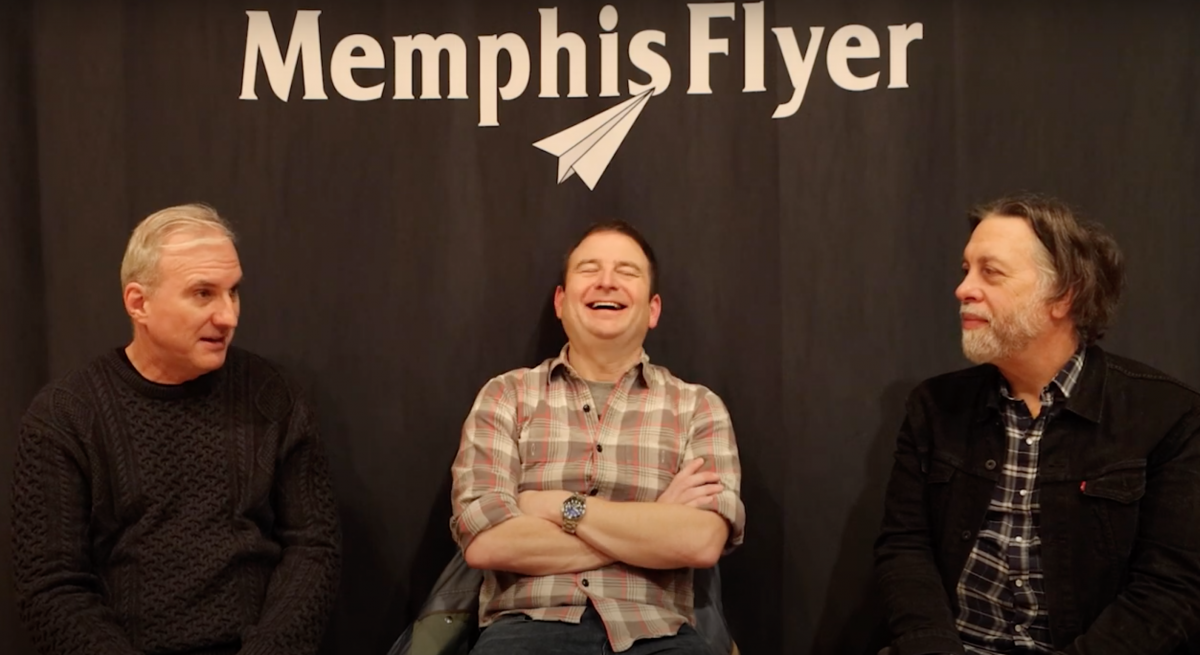
Chris McCoy talks with Kip Uhlhorn and Alex Greene of Cloudland Canyon about their new live score to the short films of Stan Brakhage. Plus, Spring Arts Guide and Soundtrack to a Coup d’Etat.
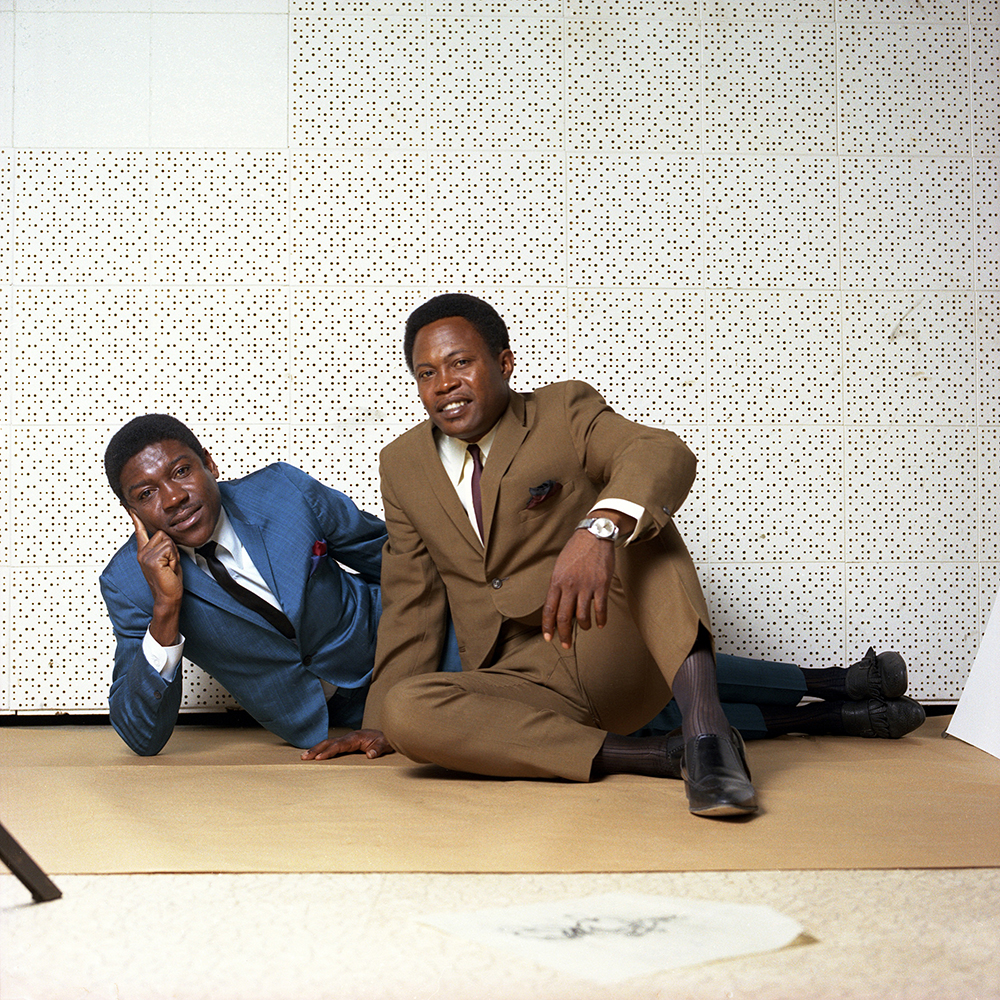
The Memphis Flyer podcast is back after a little New Year’s hiatus. In this episode, Chris McCoy and Alex Greene talk about the legacy of Sam Moore, and the season 2 premiere of Severance.
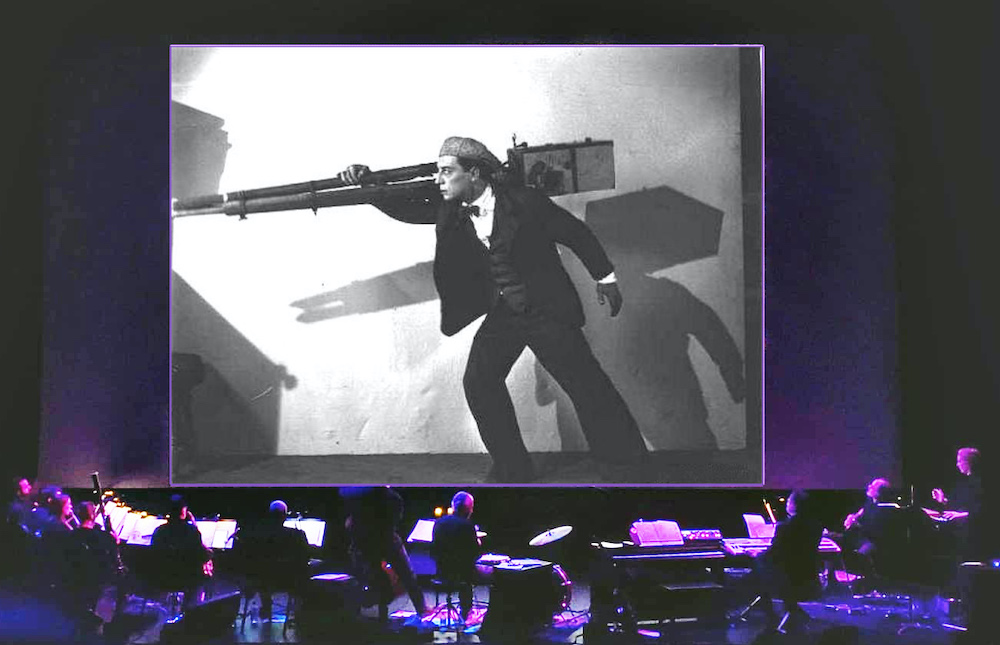
In January 2020, Alex Greene, joined by his jazz band The Rolling Head Orchestra and members of the Blueshift Ensemble, did something extraordinary: They performed original live scores to the silent films A Trip to the Moon and Aelita: Queen of Mars. Back in the first decades of the 20th century, people did it all the time, mostly organists in movie palaces, but occasionally with full ensembles. In the days before sound recording, some more elaborate film productions even came with their own sheet music for the score.
These days, it’s pretty rare, except for groups like the Alloy Orchestra, who have made a career out of performing live scores for films like Metropolis and Phantom of the Opera at film festivals. Just before the pandemic started, Crosstown Arts had commissioned a series of live scores in their new Crosstown Theater, where Greene was artist in residence at the time. “It was kind of the culmination of my residency at Crosstown Arts, and it was great, because they made everything very easy.”
“Very easy” is relative when you’re talking about writing original music for a 12-piece ensemble, including a theremin, that’s designed to sync up perfectly with a moving image. “It’s very different from recording a soundtrack,” says Greene. “You have the whole process of editing to make sure it all syncs up, but in this case, you’re just ‘Once more unto the breach!’ You’re launched into it and by the seat of your pants, hoping you can keep up with the movie, because there’s no pausing … I really wanted it to sync up with the emotional cues of the movie in a very precise way, as if you were watching a film with a pre-recorded soundtrack. That ambition made for a lot more work for all of us.”
Greene and the orchestra’s performance drew raves from the Crosstown audience, and the musician-turned-composer really wanted to jump into the breach again when COVID shut down the theater. He saw a new opportunity at Germantown Performing Arts Center’s new outdoor venue, The Grove, which features a massive video screen behind the stage. “I pitched to them back in January, and we went back and forth a lot about the best time to do it. At the time it seemed like summer was the best bet in terms of COVID, partly because the virus supposedly recedes in the heat somewhat, but also just we assumed once a vaccine became available everyone would be vaccinated by now. In any case, it is an outdoor venue, so even as early as January, we felt pretty safe in moving forward with a big concert like this.”
Greene says when it came time to choose a film, he wanted to “find something dark.” But GPAC director Paul Chandler disagreed. “People are emerging from a very dark year and a half, so let’s do something lighthearted,” Greene says. “I’ve always loved Buster Keaton, so I immediately saw what Buster Keaton films were being distributed by GPAC’s distributor, and the only one was The Cameraman, which I had never seen,” says Greene. “I looked it over and I loved it. I was like ‘Wow, why don’t more people know about this one?’ People know about The General, or Our Hospitality, or Steamboat Bill Jr., but this one is lesser-known, and in a way, that’s better for this kind of project. You’re seeing the film and the music in a very fresh way.”
The Cameraman is considered to be the last film of Keaton’s golden age, where he made incredible strides in big screen comedy and action in the mid-1920s. Keaton, who was used to total creative control, had just gotten a lucrative contract with MGM when he directed and starred in the comedy about a newsreel cameraman trying to impress a female co-worker — and failing spectacularly. It would be the last film Keaton fully controlled. Afterwards, MGM executives clamped down on the auteur’s perceived excesses; later, Keaton would say signing with MGM was the biggest mistake he ever made.
Green wrote the new score for the same band who played in January 2020: Carl Caspersen on bass, Mark Franklin on trumpet, Tom Lonardo on drums, Jim Spake on reed instruments, John Whittemore on pedal steel, and Jenny Davis and Delara Hashemi of the Blueshift Ensemble on flute, Jonathan Kirkscey on cello, Jessica Munson on violin, and Susanna Whitney on bassoon. “Once again, I have this wonderful theremin player from Florence, Alabama, Kate Tayler Hunt, who used to be the concertmaster at the Shoals Symphony. An injury prevented her from continuing as a violinist, so she pivoted and put all her conservatory training into the theremin. She has a very precise ear, and unlike a lot of people who play theremin for texture or sound effects, she can play melodies very accurately, and that just takes it to a whole other level.”
But before the players can bring the magic to The Grove, Greene has to write it down. “I’m scoring as we speak!” he says. “It’s really incredible, it’s a new thing to me. I started doing it in earnest with last year’s live score. Sure, I would write chord changes and lead sheets for my jazz group, but to actually score every note that everyone plays in a 12-piece group, and then to hear them execute it almost perfectly in the first rehearsal … it’s breathtaking!”
The audience will get to see Alex Greene and the Rolling Head Orchestra with the Blueshift Ensemble and Kate Tayler Hunt’s live score of Buster Keaton’s The Cameraman at The Grove at GPAC on Saturday, July 10 at 7:30 p.m. Greene says he hopes there are many other opportunities in the future to breathe new life into silent classics.
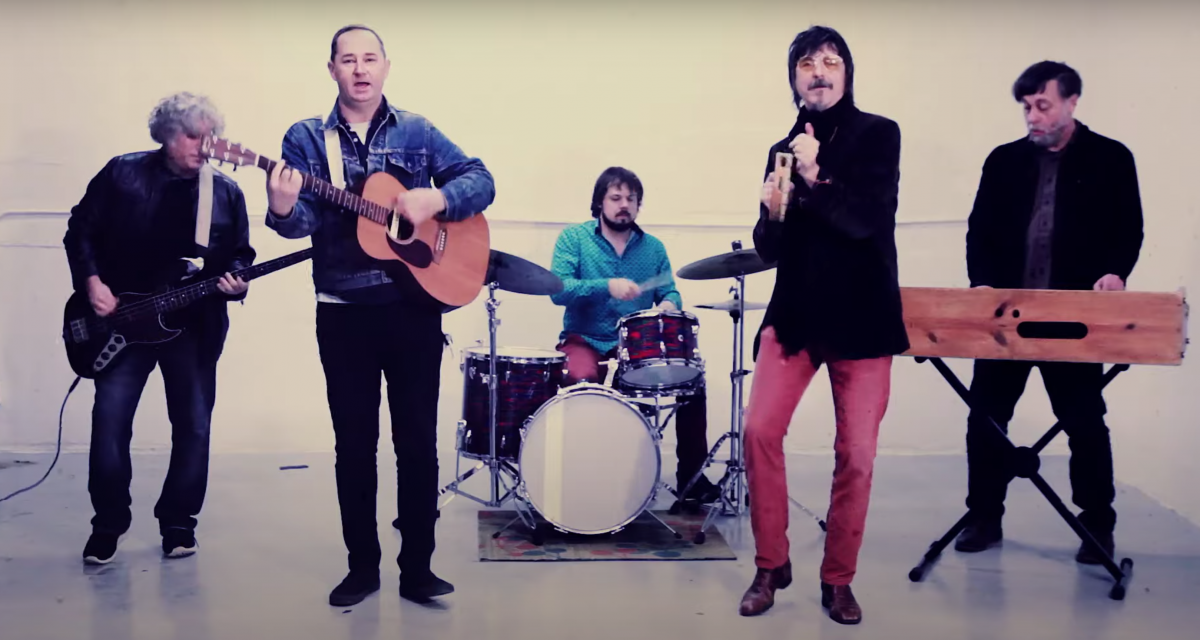
Music Video Monday is at it again!
Reigning Sound is currently on a high note. Since Greg Cartwright reunited his original Memphis lineup of Jeremy Scott, Greg Roberson, and the Memphis Flyer‘s own Alex Greene, and added in drummer Graham Winchester for spice, they’ve cracked the Billboard charts with their album A Little More Time, played a sold-out show at the River Series, and announced as GonerFest 2021 headliners (which is also sold out, so grab a streaming ticket instead).
The music video for the lead single “Let’s Do It Again” shows the rockers in full flight It’s the Monday kickoff you need right now.
If you would like to see your music video on Music Video Monday, email cmccoy@memphisflyer.com.

This happens on the Goner TV Holiday Special.
It’s that time of year when you ask yourself, “How many more versions of A Christmas Carol do I have to watch?” Well friends, liberation is available if you want it. It’s called the “Goner TV Holiday Special,” and it’s happening tonight.
Memphis’ pioneering garage/punk label and beloved record store Goner’s pivot from live shows to streaming has been one of the rare success stories of the pandemic. Their weekly webcasts have become wacko variety shows combining live music, comedy, art, talk, and whatever else they can put in front of their cameras.
Now, the variety show format reaches its final form with the Holiday Special. Goner honchoes Eric Friedl and Zac Ives will be joined by Friedl’s Oblivians bandmate Greg Cartwright, Christmas music from Robby Grant (joined by Memphis Flyer Music Editor Alex Greene), Shannon Shaw & Cody Blanchard, and Detroit’s Human Eye madman Timmy Vulgar. You’ll also get to see the world premiere of The Sheik’s new “Christmas in Space” video, which is absolutely bonkers. There’s also new art by ex-Nots keyboardist Alexandra Eastburn, a cooking segment, and a bunch of other cool stuff that you’re just going to have to tune in to believe.
The Goner TV Holiday Special streams tonight at 8 p.m. CST on Twitch or GonerTV.com.
What a difference a year makes. Last October, Bailey Bigger released her debut EP, Between the Pages, on Blue Tom Records (the label run by the University of Memphis), and certainly her skills as a songwriter and vocalist were obvious. Her unaffected alto, reminiscent of Buffy Sainte-Marie, was the perfect vehicle for her simple, deft turns of phrase. But now, as she is poised to release Let’s Call It Love, her first EP for Big Legal Mess Records, those songs seem a world away. It’s hard to believe she’s made such a journey with only 20 years under her belt.
Her trademark qualities are still on full display, but are now complemented with an even more refined band, assembled at Delta-Sonic Sound by producer Bruce Watson.
“Bruce brought a little bit of soul into my music,” she says. “He brought in the organ and the electric guitars and things like that that I never would’ve thought to do on my own. It’s Americana but Memphis.” She speaks the truth: With players like Mark Edgar Stuart (her mentor of sorts), Joe Restivo, Will Sexton, Al Gamble, George Sluppick, and Jana Meisner, the record represents the state-of-the-art Bluff City sound.
 Adrian Berryhill
Adrian Berryhill
Bailey Bigger — she’s a keeper of the fire.
And yet Watson’s first pivotal move in making this record was simply rejecting her first batch of songs, forcing Bigger to come up with her best material yet. To compose the new songs, she dug deep into the turmoil she’d recently faced due to an unpleasant breakup, her grandmother’s death, and her feelings of alienation in moving from Marion, Arkansas, to the big city across the river. Now that she’s happily relocated to a farm near Marion, she’s gained some perspective on those earlier struggles.
Memphis Flyer: Was it emotionally difficult to delve into your personal backstory to create the songs on the new EP?
Bailey Bigger: Well, in my poetry-writing class, we were talking about trauma in poetry and how it’s really hard to write about traumatic experiences. You have to put yourself in that headspace again and relive it, in a way, to get those truths out on paper or in songs. And a lot of times that’s easier to just avoid. But I live for that stuff, in a way, because I think it’s one of the most important parts of the human experience, to be open and talk about things that people are afraid to talk about.
That makes for better songs, don’t you think? But is it tough to sing those songs once you’ve written them?
I think it becomes like muscle memory, in a way, performing these things live. If I were to really dig in and relive those moments every time I played it live, I don’t think I’d make it through the performances. When I was recording “Let’s Call It Love,” we cut several vocal tracks and we were like, “Yeah, that’s fine. Pitch is good.” But I was thinking, “I’m not singing this how I felt it.” And that’s one of the worst things ever, where your voice isn’t delivering what you felt. I hate that. So I said, “Okay, just one more time.” And I remember how I channeled the take that I wanted to keep. It wasn’t by thinking of the person the song’s about. I did not want to picture that person at all. I thought to myself, “Sing to the girl who is in the same place as you are. Sing to that person that it hasn’t happened to yet. She still has a chance to get out. Sing to that person that you were a year and a half ago when you didn’t see it.” So that’s what really got me to perform it the way I wanted to.
I also get that feeling from the bonus track, “A Lot Like I Do” — “I remember a girl who looks a lot like you do” — as if you’re looking back at yourself.
That was probably the hardest one for me to perform. That one still evokes strong emotions in me every time I play it live. It’s probably the most personal song I’ve ever written in my life. It doesn’t even say anything specific about what happened to me, but I think it tells it perfectly at the same time. I can’t rely on muscle memory with that. That’s a rough one. All three songs are about this transformative time in my life. But the person I was at the beginning of all those traumas is not who I am now.
This Saturday, Memphis garage-rock gurus Reigning Sound will perform live (streamed to your computer or device via Twitch and Facebook Live) from the stage of B-Side, presented by Goner Records, to celebrate the upcoming Merge Records rerelease of the band’s 2005 album Home for Orphans.
The Home for Orphans reissue isn’t Reigning Sound’s first association with Merge. Their excellent 2014 LP Shattered was released on Merge Records, as was last year’s reissue of Abdication … for Your Love. “Featuring,” Merge’s website boasts, “the original Memphis lineup of singer-guitarist [Greg] Cartwright, bassist Jeremy Scott, drummer Greg Roberson, and [Flyer Music Editor] organist Alex Greene, Home for Orphans presents Reigning Sound’s classic sonic blueprint.”
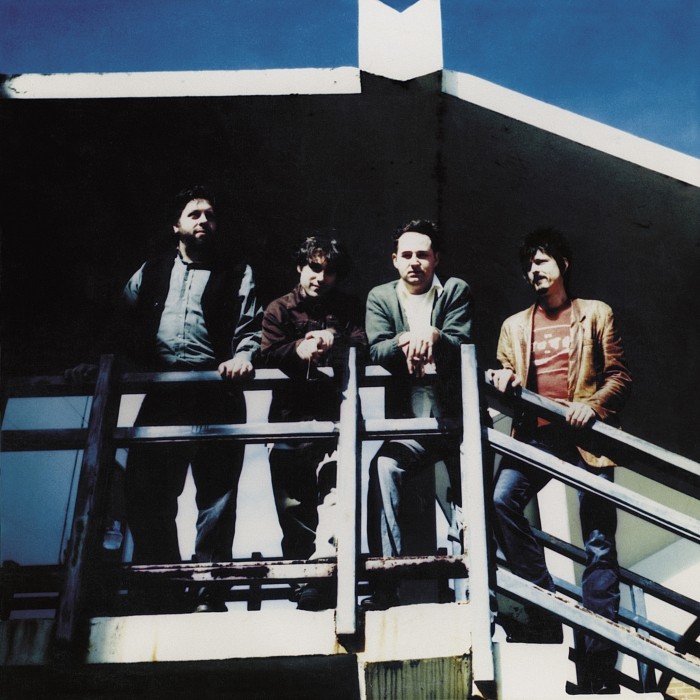
Home for Orphans
That the record is made up of outtakes, demos, and rarities makes it feel like a glimpse of something elusive and wild. The songs are moody and raw, oozing atmosphere and warbling organ chords. “It was a record almost by accident,” says bassist Jeremy Scott. “We had a whole third record pretty much ready to go when Alex left. (He had a youngun’ to raise, and probably didn’t need to hang with us heathens so much anyway.) The more rockin’ material was lifted for what became Too Much Guitar, along with some newer things we developed as a trio; the moodier stuff, which contains some of Greg’s best songs in my opinion, formed the basis of this record.”
Scott adds, “Great to see it available again, in a jacket which features not one but two pictures of us! We were ugly then and we’re uglier now!”
“Love is a funny thing,” Cartwright sings over a bed of acoustic guitars, slide, and burbling bass. “Don’t know it’s real till it’s caused you pain.” The drums are unobtrusive for most of the song — a light tok! on the snare, shimmery cymbals and hi-hat to keep the beat — until the fills come in, big and dramatic as anything drummer Howard Wyeth played on Bob Dylan’s Desire.
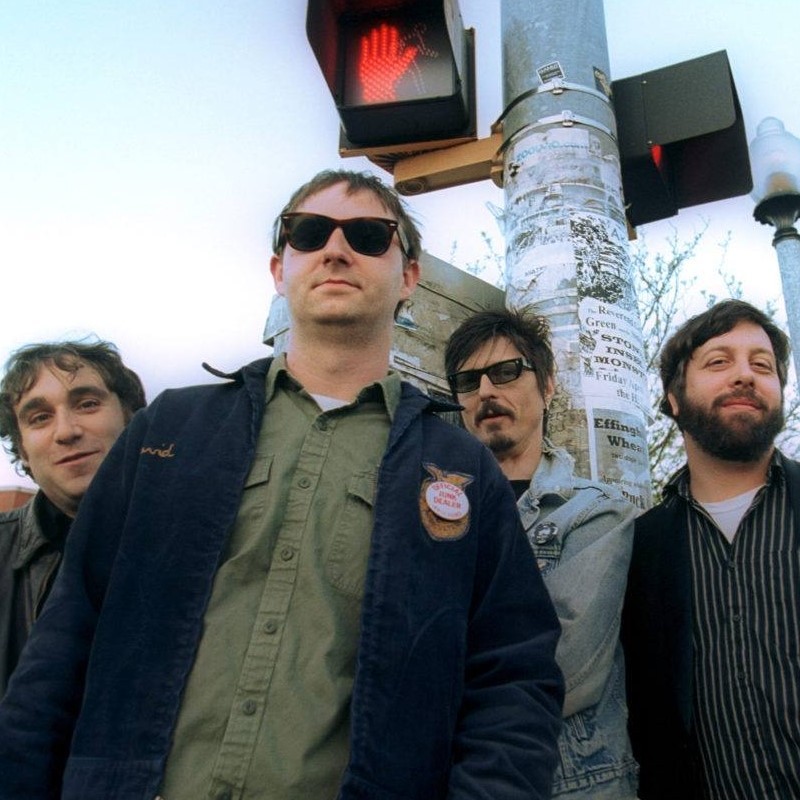
Reigning Sound: (left to right) Jeremy Scott, Greg Cartwright, Greg Roberson, and Alex Greene
“If Christmas Can’t Bring You Home” is plaintive. Shakers and whining electric guitars that riff off of the melody of “Joy to the World” are almost too maudlin, but in the end, it works wonderfully, the sound of a lonely, drunken holiday distilled. And of course, the woeful organ chords work wonders as well. “Medication Blues #1” swirls with Byrds-like chiming guitars and an uptempo drum shuffle. The format for many of the songs — acoustic guitars, swirling organs, electric guitars played crisp and clean, bass and drums high in the mix, and harmonies galore — represents a particular sound Memphis seems to do so well in any genre, be it garage, soul, or power-pop.
“The out of town shows we did in March demonstrated that we can still bring it,” Scott says, obviously amped about the upcoming full-band performance. (Scott, like many musicians in the age of coronavirus, has streamed solo performances from his couch.) “I’m looking forward to having another opportunity to play with these guys, who are like brothers two through four to me.”
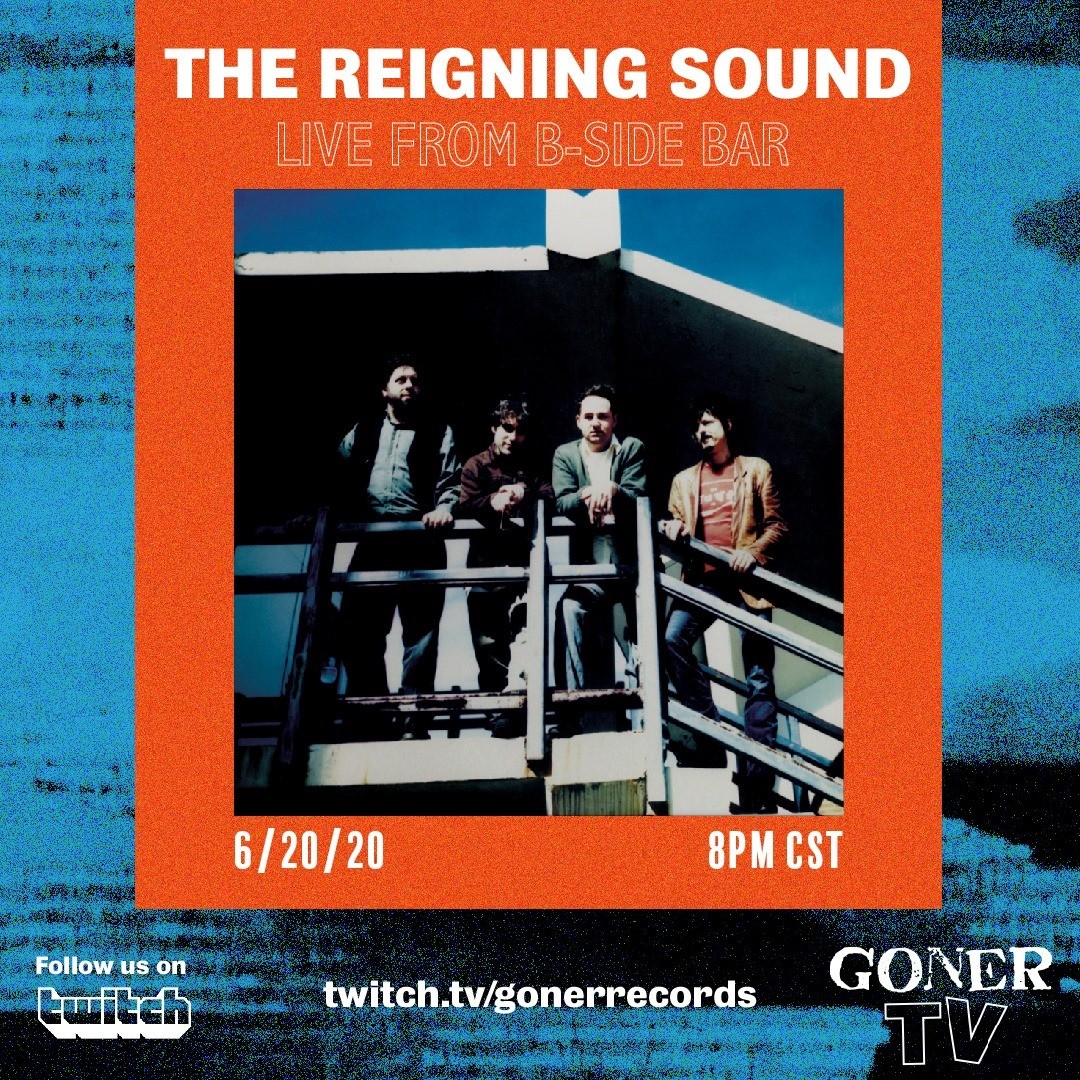
The folks at Goner have this to say about Goner TV: “We are all bummed out and we can’t get out and see a show. See our friends. Hang out and have some laughs late into the night in a dark dingy bar. Remember those days? So we wanted to do something about it. Goner TV is our attempt to bring the good times to you.”
Goner Presents: Reigning Sound Live From B-Side Saturday, June 20th, at 8 p.m. Catch it on Facebook Live or on the Goner Twitch channel: twitch.tv/gonerrecords.
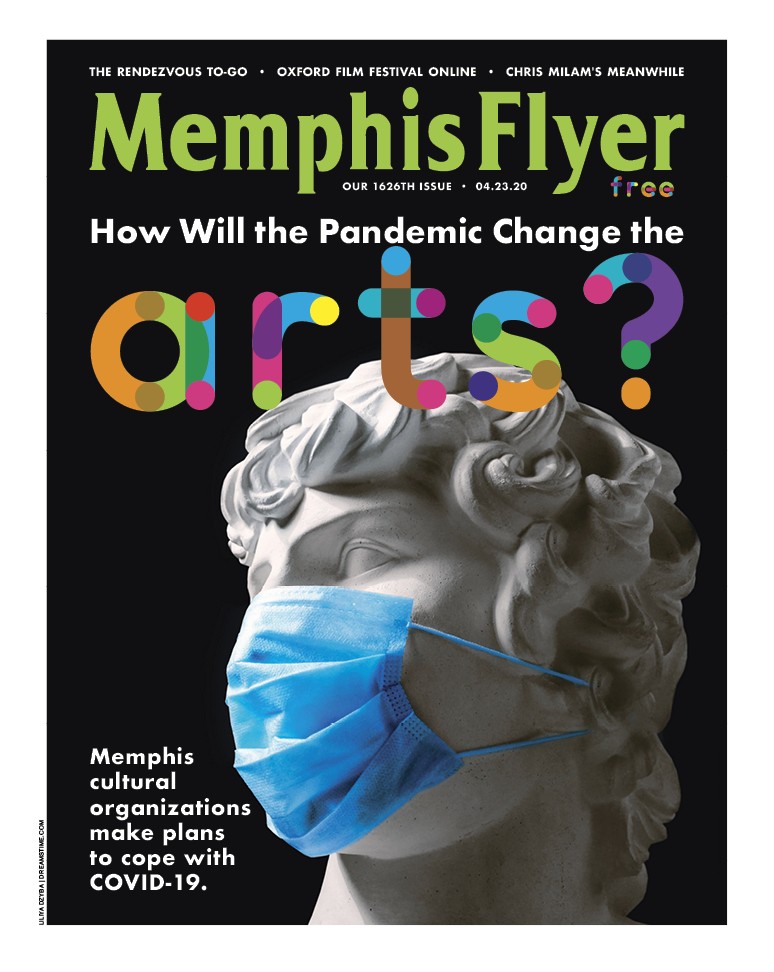
Here’s the story lineup for this week’s virtual issue. Enjoy! We’ll be back in print next week, April 29th. — BV
Letter From the Editor: Blue Skies From Now On — Bruce VanWyngarden
MEMernet: A Very Memphis Easter, a New Bar — Toby Sells
The Week That Was: Data, Abortion, and Domestic Violence — Maya Smith
The Fly-by: Displaced Actor Finds Work, Purpose Serving the Underserved — Toby Sells
Politics: Commission Gets $1.4 Billion Budget From Harris — Jackson Baker
Cover Story: Memphis Cultural Organizations Learning to Deal with the Pandemic — Jon Sparks & Chris McCoy
Steppin’ Out (Stayin’ In): Silky O’Sullivan’s Hosts Virtual Happy Hour — Julia Baker
Books: Corinne Manning’s We Had No Rules — Jesse Davis
Music: Chris Milam’s Meanwhile is a “Good Album for Quarantine” — Alex Greene
Food & Wine: The Rendezvous Adapts During Quarantine — Michael Donahue
Film: Oxford Film Fest Debuts Pioneering Online Format — Chris McCoy
Last Word: Coronavirus is a Dress Rehearsal for Global Warming — Alex Greene